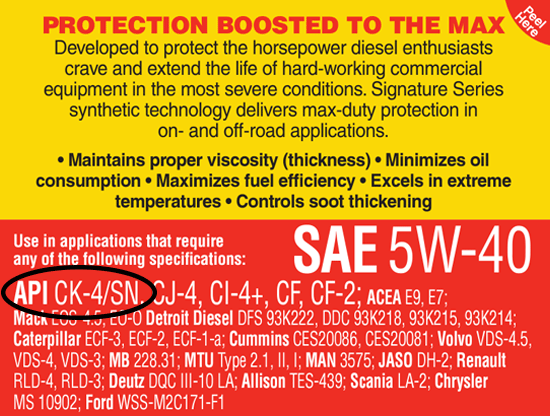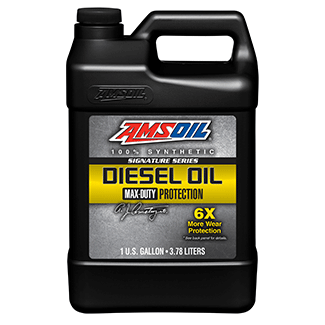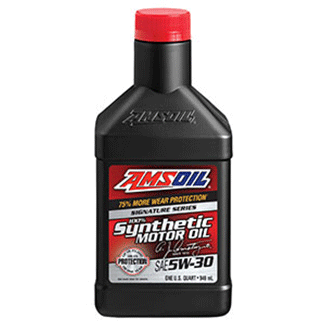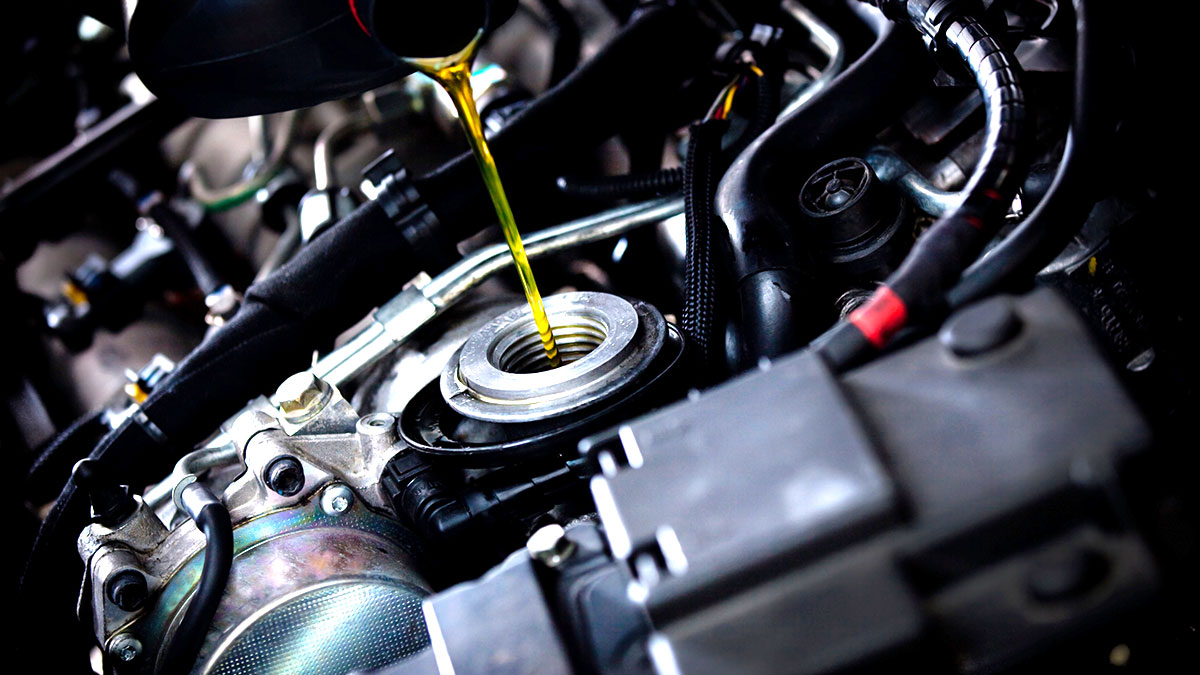Yes, you can use diesel oil in a gas engine, provided the diesel oil meets the appropriate specifications and viscosity requirements of your engine.
For example, if your gas engine calls for a 5W-30 motor oil that meets the API SN PLUS specification, you can safely use a diesel oil of the correct viscosity that meets the API SN PLUS spec.
For the typical gasoline application, however, a diesel oil isn’t required and the more appropriate choice is a quality gasoline motor oil for both performance and value. Let’s look more closely at the diesel oil vs. gas oil debate.

Diesel Oil vs. Gas Oil: Are Diesel Oils “Tougher”?
It’s common for some owners of modified gasoline-powered vehicles to favor diesel oils over their gasoline counterparts.
Many assume diesel oils are more durable and more capable of withstanding the increased heat of a powerful, turbocharged engine.
Others lean toward higher-viscosity oils to protect against wear.
Some want to run a 15W-40 oil in their gas engine, and it’s often easier to find a 15W-40 or similar viscosity of diesel oil than a gasoline motor oil. Others favor the increased detergency of diesel oils.
While you can use diesel oil in a gas engine provided it meets the appropriate specifications and viscosity requirements, there’s far more to the topic than that, as I learned after talking to Mark Nyholm, AMSOIL Staff Product Development Engineer, Mechanical R&D Manager.
Can I Safely Use Diesel Oil In Gas Engines?
Nyholm: It depends on the specifications the diesel oil carries and the recommendation of the original equipment manufacturer (OEM).
The American Petroleum Institute (API) publishes its “C” category of specifications for diesel oil (currently CK-4) and its “S” category for gasoline motor oil (currently SP).
Though they’re designed for diesel applications, they can be used in gasoline applications for those drivers who want to use one oil in all applications.
If the diesel oil carries both specs, feel assured the oil is safe to use in diesel and gas applications. If the diesel oil does not carry the “S” category, I strongly recommend against using it in gasoline applications.
Check the back label for the specs for which the oil is recommended. You can see an example below using AMSOIL Signature Series Max-Duty Synthetic Diesel Oil. As shown, it’s recommended for the API CK-4 diesel spec and the API SN gasoline spec.

Why Do Some Motorists Favor Diesel Oil Over Gasoline Motor Oils?
Nyholm: There are many reasons people choose the oil they use.
Since oil is not top-of-mind with many motorists, it’s typical for people to purchase based on viscosity alone.
Many gasoline engines today call for 5W-30, with more and more requiring 5W-20, meaning those viscosities are typically what’s readily available. So, if you’re looking for a 5W-40 or 15W-40 for your gas engine, it’s often easiest to find that viscosity in the diesel engine oil aisle.
Others use diesel oil under the assumption it’s a more “heavy-duty” product and must be better than gasoline motor oils.
They may have been told diesel oil is formulated with special components not available in gasoline motor oils, such as more robust detergency additives to handle the soot inherent to diesel engines. In their minds, diesel oils are analogous to better protection.









